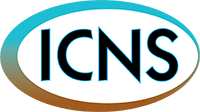iCNS Horizons
“intelligent CNS” for Evolutionary and Innovative Air Transportation
The Integrated Communications Navigation and Surveillance (ICNS) Conference is the premier international aviation conference addressing technology and policy advances in CNS research, development and implementation programs, and policies related to CNS/ATM capabilities and applications. The ICNS Conference assembles leaders from government, industry, and academia, as well as senior technical experts to address important policy issues and contribute to the future directions of CNS and ATM.
The 2020 ICNS Conference theme is “iCNS Horizons: intelligent CNS for Evolutionary and Innovative Air Transportation.” ICNS 2020 will focus on intelligent CNS technologies and concepts, and their effect on the future of air transportation systems and the evolution of our current systems as new innovations and new technologies emerge. The conference will consider applications of artificial intelligence (AI), machine learning (ML), decision support systems (DSS), and other potentially applicable advanced technologies to meet the CNS needs of our increasingly complex air traffic management and aviation operating environments.
AI, ML, and sophisticated DSS technologies are rapidly emerging as intelligent methods for management roles in complex systems and operations environments. These technologies can support intelligent CNS capabilities for 4D trajectory-based operations (TBO), the increased automation requirements of future flight, global coordination of flight operation and air traffic management strategies, as well as the rapidly emerging unmanned aircraft systems (UAS) and urban air mobility (UAM) operations environments. ICNS 2020 will address these intelligent CNS concepts and the radio frequency spectrum on which they all depend as well as the challenges of transitioning from current CNS infrastructure to advanced future technologies.
The ICNS Conference also provides an excellent opportunity to meet fellow CNS policy makers and research specialists to exchange ideas during the breaks and at the evening social events.
ICNS 2020 will be a three-day event. Each day of the conference will begin with a morning plenary session addressing a hot topic of global relevance. Distinguished speakers will set the stage for the policy, economic, operational, and technological aspects of the plenary. Following each morning plenary, the afternoons will offer a number of parallel technical discussions with selected papers and presentations on various CNS themes. The technical papers and presentations will explore recent developments in technology and system design characterizations that address and complement the plenary topics.
The conference will provide a summary of key CNS/ATM programs and addresses the transition between our integrated CNS systems of today to the intelligent CNS systems of tomorrow by examining implementation strategies, standards development, research, ICNS technologies, and opportunities for intelligent communications, navigation, and surveillance infrastructure deployment.
Plenary Sessions
To be defined soon.
Interactive Workshop
Urban Air Mobility – Opportunities and Challenges for Integrated CNS/ATM
After landing at the airport, you hail an on-demand vertical take-off and landing (VTOL) aircraft on your favorite ride-share app. Twenty minutes later you are briefing your client downtown, saving you two hours in rush hour and ultimately shortening your time away from home. By using the third dimension, altitude, urban air mobility (UAM) has the potential to bypass surface road congestion, revolutionize local economies and significantly improve the quality of life for commuters and residents.
Today’s advances in technology: communications, surveillance, navigation, and automated flow management systems along with electrification technology, hybrid propulsion systems, materials, and vertical take-off and landing vehicles are all major enablers to such an on-demand urban mobility system.
This workshop will lay out the opportunities and challenges of UAM for service providers to consider in developing and fielding the first fully integrated communications, navigation and surveillance and air traffic management system that can lead to a complete redesign of today’s airspace.
Afternoon Technical Sessions
Papers and presentations are solicited for the technical sessions, addressing the key topical areas listed below:
- Artificial Intelligence and Machine Learning for Future CNS/ATM Solutions
- Managing Complexity in Future Air Transportation Systems
- Transitioning from today’s CNS Technologies to the iCNS horizon
- Commercial, Military, and Consumer Remotely Piloted and Autonomous Systems
- Integration of Emerging Systems into the Airspace: UAS, UAT, UAM, and Space Transportation
- Data and Voice Communications Systems
- Surveillance Systems & Situational Awareness
- Navigation Systems & Positioning, Navigation and Timing (PNT) Technologies
- CNS Integration and Avionics Consolidation
- Cybersecurity
- Performance-based CNS/ATM and Supporting Technologies
- Airport & Airspace Operations/Optimization
- Civil/Military Airspace Interoperability
- Impact of Climate Change and Aviation Weather on Aviation and CNS Performance
- Changing Economic Impact on CNS System Users
- Impact of the Changing Aviation Spectrum Environment on CNS
Sponsors & Exhibits
ICNS 2020 invites industry sponsorship, exhibits, and product demonstrations by representatives of CNS-related industries and organizations. Participating as an exhibitor in the conference allows close-up interaction with customers and key policy decision makers from around the world to help move your research and products closer to daily operations.
For more information, contact Sponsors and Exhibits Chair Mark Darnell, sponsor.exhibits.chair@i-cns.org.
Best Paper Competition – Student and Professional
ICNS 2020 will include student and professional Best Paper competitions. Active students and professionals within two years of graduation are eligible for the ICNS Student Best Paper honorarium awards. Those not eligible for Best Student Paper are eligible for Best Professional Paper awards.
Abstract Submission
Authors are invited to submit abstracts by 16 December 2019, addressing one or more of the key topical areas listed above or having a critical relevance to the above aeronautical CNS topics. Abstracts should clearly define the goal of the work, its tasks, methods or results (anticipated or completed) as well as the potential benefits or applications of the work. Abstracts need to be clear and concise, with at least 250 words and no more than 750 words.
For additional questions, please contact the technical program chairs, technical.chair@i-cns.org, or the technical publications chair, publications.chair@i-cns.org.
Deadlines (Extended)
Paper deadline extended further due to COVID-19 virtual meeting rescheduling.
- Abstract submission:
16 December 201916 January 2020 - Notification of acceptance:
13 January 202030 January 2020 - Final papers due:
24 February 20209 March 20203 August 2020
